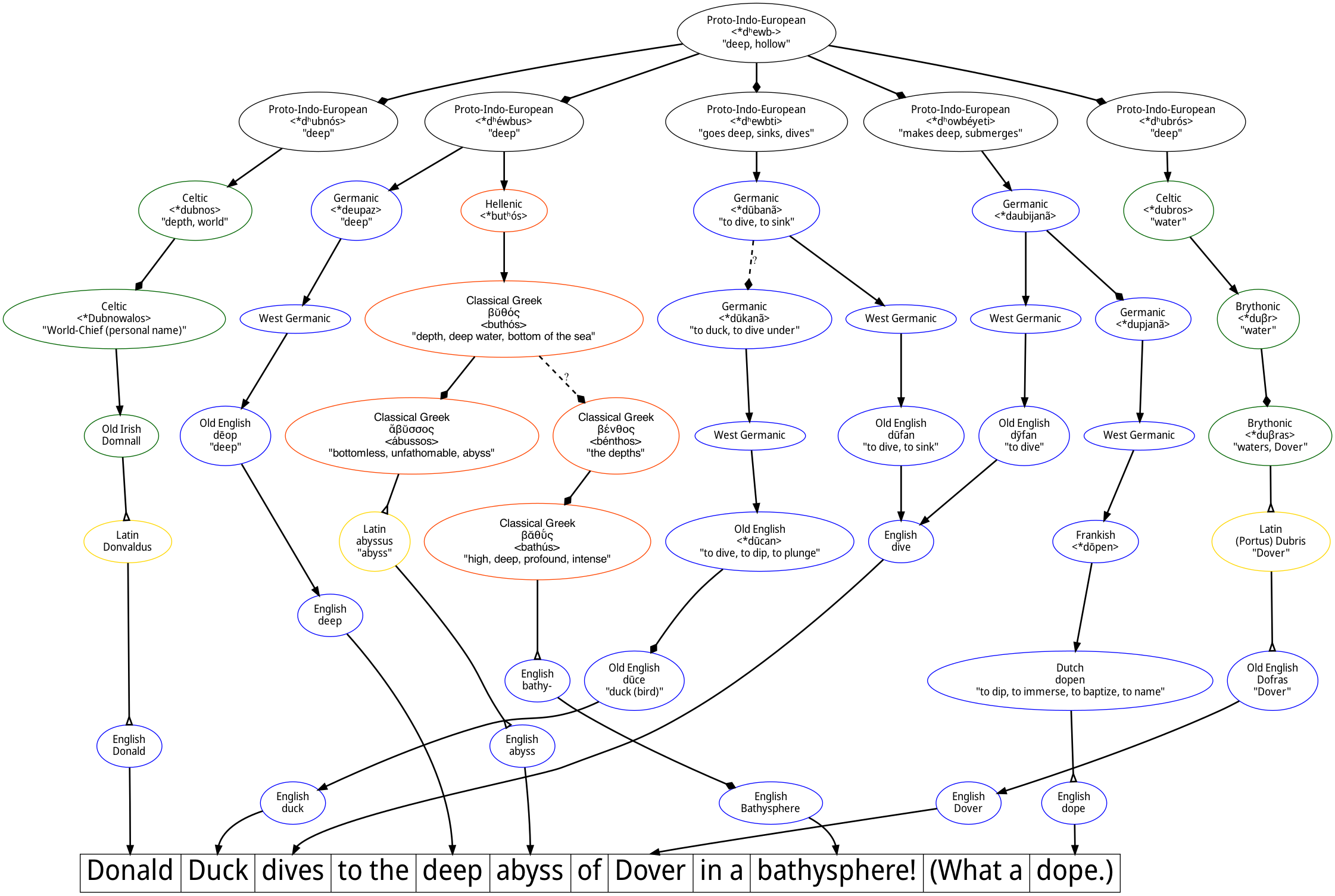December theme: Pre-Classical Mediterranean 🏝
Teaser
Full Text
-
Afro-Asiatic *ptḥ to create?, to begin?
-
Egyptian ptḥ Ptah, self-created divinity of craft and creation
- English Ptah
-
Egyptian ḥwt-kꜣ-ptḥ Temple of the Soul of Ptah, Memphis
-
Mycenaean Greek *ai-ku-pi-to
-
Ancient Greek Αἴγυπτος Aíguptos Egypt, the Nile
-
Latin Aegyptus Egypt
-
Western …
-
-
-
-
-

